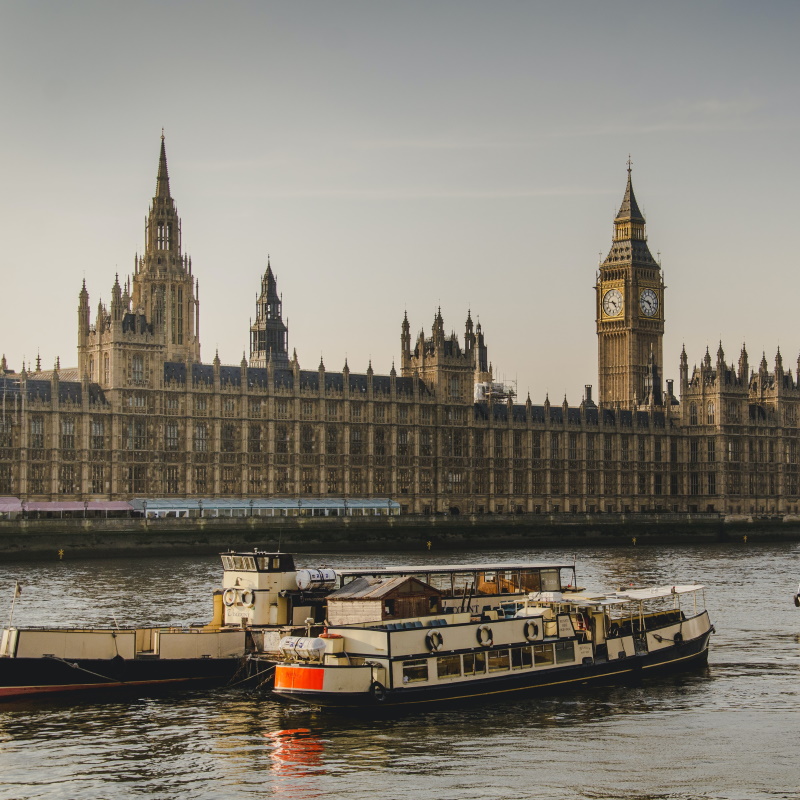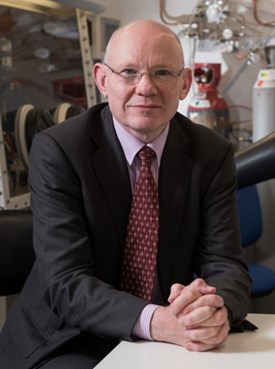Two participants of the Royal Society's 2021 Pairing Scheme share experiences of their Week in Westminster.

The Royal Society’s Week in Westminster – a crash course for budding influencers by Professor Jugnoo Rahi
A month on, and having waxed lyrical to about it to colleagues and family at the time, it is a pleasure to share some thoughts on the fantastic experience that was the 2021 Royal Society’s Week in Westminster. I confess to not knowing about this scheme until I saw it being advertised on Twitter - as a recent member of that particular community I am finding it a surprisingly useful ‘heads up’ medium. In fact for 21 years the scheme has purposefully paired scientists with parliamentarians to improve mutual understanding of our worlds and strengthen the dialogue between them.
The scheme of course had to be run this year as an online event. So all the participating scientists had to use their imaginations or memories of the grand and not so grand spaces in the Palace of Westminster and parliamentarian bolt holes to conjure the right atmosphere, as we sat at our screens instead for the our days.
But it didn’t detract from the learning. And I am delighted to share the two lessons learned that I plan to take forward in my nascent career as an influencer…
#ScienceMatters
There has never been a better time for scientists to spark and shape public discourse, the thinking and commitments of parliamentarians and the content of Government and inter-Governmental policies. The COVID-19 the pandemic has irreversibly shown every citizen that science and real experts matter to the health, well-being and wealth of our country.
This includes parliamentarians.
Scientists should feel encouraged to think that the doors of policy makers are more open than ever before – they know that they need our advice, so we need to take the initiative to ensure it reaches them.
#ScientistsCanInfluence
Influencing policy making is complicated.
It requires the right audience to hear the right message at the right time. And persistence.
As scientists we need to speak in the parliamentarian’s language – conveying a message that provides a good and evidence based solution to an important problem affecting society – preferably with stylish brevity!
But equally we need to find champions and allies who will help us deliver our message in the right way, to the right people, at the right time. It is most definitely not enough to know we have an important message, we need to know how to have it heard and be acted on.
The best champions and allies may not be obvious – there is value in casting a wide net and hoping for a chance and hope for some luck.
Our Parliamentary system is old and much within it is arcane. Process matters (a lot) and embarking on a journey to influence policy without an understanding of how Parliament, Government and parliamentarians work is highly unlikely to end well. It is matters to know which labyrinths to enter and to do so equipped with the right maps to negotiate them.
The fantastic civil servants and parliamentarians of all persuasions who contributed their time and expertise so generously to offer their insights are, I suspect, representative of many in Westminster who are motivated by their commitment to public service. If you are scientist who believes that science is important to the values, endeavours and successes of society, please know that parliamentarians need (and want) to hear from you.
Net Zero policies and the energy transition: perspective from the oil and gas industry by Dr Teresa Redondo López
This year I have had the privilege to participate in the fascinating and informative Week in Westminster Pairing Scheme organised by the Royal Society. In the year of a global pandemic and the drive for Net Zero, science is at the forefront of political debate. I had the pleasure to share this experience with 30 scientists from all branches of science, engineering, and technology. Unlike most of the participants, I am not an academic, but I work as a technical professional in the oil and gas industry, where I have spent the most of my career, after a short stint in academia.
From early on in my scientific journey, policy and geopolitical events have played an important part in where my career has taken me. I studied earth sciences at university in northern Spain, an industrial and mining region. Within a few years of starting my studies many of the coal mines in the region were decommissioned and the steel industry decimated with devastating consequences for the economy and population of the region. Faced with unemployment, I decided to stay in academia to do postgraduate research on synthesising lithium salts. I then moved to England to embark on a field work-based PhD on structural geology. Following this I went into the oil industry with a very sound understanding of the influence of human activity and in particular the use of fossil fuels, has on climate change.
The oil and gas industry has allowed me to study some of the most fascinating images of the subsurface through the analysis of seismic reflection and borehole data. The job has also exposed me to projects in developing countries where the need for energy for economic development has been paramount. However, the increasing awareness of climate change and pressure from public, media and policy makers for decarbonisation policies has had a direct impact on the industry. Many oil and gas professionals face continuous uncertainty about the future of the industry and our job security.
In this context, my motivation for joining the Pairing Scheme was to understand how decisions about energy and Net Zero policies are taken and who influences the debate in Westminster. I am also extremely interested to contribute to strategy and policy debate and engage with wider society and institutions about the challenges ahead.
The experience allowed me to spend some time with my local MP, Dr Rupa Huq, and her team, and relate to them the status of the industry and some of the issues it currently faces. The oil and gas industry is still a major contributor to the UK economy, supporting over 40,000 jobs.
While society and policy makers are aligned on the need for a sustainable energy future to arrest climate change there are many aspects of this transition that affect directly my line of work. From a personal point of view, I am also concerned about the future of geosciences, which in many academic institutions, have benefited from the sponsoring of oil and gas companies, contributing to the advancement of earth sciences.
The Pairing Scheme provided me with the motivation, the insight, and the forum to start this conversation and recognise the importance of communicating accurate data to everyone so policy makers can make informed decisions. I have also reflected on the importance of promoting STEM subjects and scientific literacy. In the case of the oil and gas industry, we should actively contribute to public education on energy, decarbonisation and climate change, but also on the importance of energy security and an energy transition which is fair for all. Private industry should see the importance and value of supporting this. It could also draw enormous value through investing in R&D and cooperation projects with research institutions involving new technologies and projects in the energy transition.
Often policy makers need to balance between conflicting science-driven policy and its socio-economic impact, and this is one of those times.
The week has certainly emphasised the requirement for policy makers, private enterprises, scientists, and wider society to maintain dialogue and achieve a fair outcome for the planet and for human prosperity.




